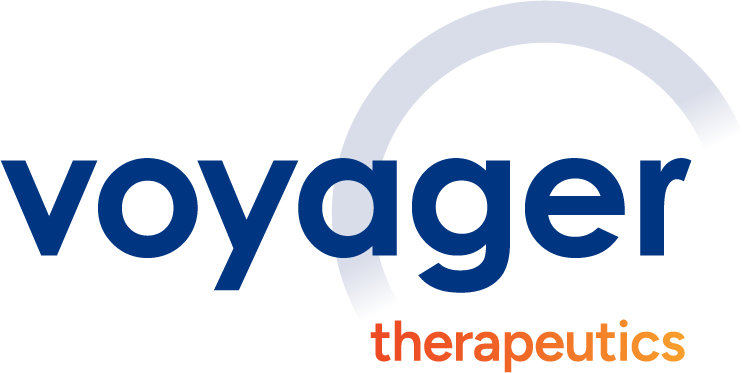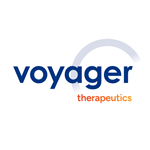Release Details
Voyager Therapeutics Announces First Participants Dosed in Single Ascending Dose Trial of VY-TAU01 for the Treatment of Alzheimer’s Disease
The objective of the randomized, double-blind, placebo-controlled, SAD trial is to evaluate the safety and pharmacokinetics of VY-TAU01 in healthy adult volunteers. The study is being conducted at a single site in
“The initiation of clinical development of VY-TAU01 for the treatment of Alzheimer’s disease is an important milestone for Voyager; it demonstrates the executional abilities of our neurology drug development team, which will be central to our advancement of three wholly-owned and partnered neurology gene therapies towards IND filings next year,” said
About VY-TAU01
VY-TAU01 is an IV-administered, recombinant, humanized IgG4 monoclonal antibody developed to inhibit the spread of pathological tau, which is closely correlated with disease progression and cognitive decline in Alzheimer’s disease. In contrast to previous N-terminal directed anti-tau antibodies that did not show efficacy in clinical studies, VY-TAU01 targets a distinct C-terminal epitope of tau and has demonstrated robust in vivo inhibition of the spread of pathological tau in a preclinical model. Additional preclinical studies have demonstrated that VY-TAU01 was well-tolerated and demonstrated a favorable pharmacokinetic profile following IV administration.
About Alzheimer’s Disease
Alzheimer’s disease is a progressive neurodegenerative disease estimated to affect 6 million people in the U.S.i and up to 416 million people globallyii. The disease causes memory loss and may escalate to decreased independence, communication challenges, behavioral disorders such as paranoia and anxiety, and lack of physical controliii. In 2023, the total cost of caring for people living with Alzheimer’s and other dementias in the U.S. is estimated at $345 billioniv.
About
Voyager Therapeutics® is a registered trademark, and TRACER™ is a trademark, of
Forward-Looking Statements
This press release contains forward-looking statements for the purposes of the safe harbor provisions under The Private Securities Litigation Reform Act of 1995 and other federal securities laws. The use of words such as “potential,” “anticipate,” “expect,” “will,” “may,” and other similar expressions are intended to identify forward-looking statements.
For example, all statements Voyager makes regarding Voyager’s ability to advance its AAV-based gene therapy programs and tau antibody program, including expectations for Voyager’s achievement of preclinical and clinical development milestones for its potential development candidates such as IND filings, the initiation of clinical trials, and the generation of clinical data; the potential for clinical data from the SAD trial to inform the design of the Voyager’s anticipated MAD trial; and Voyager’s ability to advance gene therapy product candidates under its partnered programs are forward looking.
All forward-looking statements are based on estimates and assumptions by Voyager’s management that, although Voyager believes such forward-looking statements to be reasonable, are inherently uncertain. All forward-looking statements are subject to risks and uncertainties that may cause actual results to differ materially from those that Voyager expected. Such risks and uncertainties include, among others, the continued development of Voyager’s technology platforms, including Voyager’s TRACER platform and its antibody screening technology; the ability to initiate and conduct preclinical studies in animal models; the development by third parties of capsid identification platforms that may be competitive to Voyager’s TRACER capsid discovery platform; Voyager’s ability to create and protect intellectual property rights associated with the TRACER capsid discovery platform, the capsids identified by the platform, and development candidates for Voyager’s pipeline programs; the initiation, timing, conduct and outcomes of Voyager’s preclinical and clinical studies; the possibility or the timing of Voyager’s receipt of program reimbursement, development or commercialization milestones, option exercise, and other payments under Voyager’s existing licensing or collaboration agreements; the ability of Voyager to negotiate and complete licensing or collaboration agreements with other parties on terms acceptable to Voyager and the third parties; the ability to attract and retain talented directors, employees, and contractors; and the sufficiency of cash resources to fund its operations and pursue its corporate objectives.
These statements are also subject to a number of material risks and uncertainties that are described in Voyager’s most recent Annual Report on Form 10-K filed with the
Contacts
Investors:
Media:
____________________________
i Alzheimer’s Association. 2023 Alzheimer’s Facts and Figures. Available at: https://www.alz.org/media/Documents/alzheimers-facts-and-figures.pdf. Accessed February 15, 2024.
ii Gustavsson A, Norton N, Fast T, et al. Global estimates on the number of persons across the Alzheimer's disease continuum. Alzheimer's Dement. 2023; 19: 658–670. doi: 10.1002/alz.12694.
iii Penn Medicine. The 7 Stages of Alzheimer’s Disease. Available at: https://www.pennmedicine.org/updates/blogs/neuroscience-blog/2019/november/stages-of-alzheimers. Accessed February 15, 2024.
iv USAgainstAlzheimer’s. The Alzheimer’s Disease Crisis – By the Numbers. Available at: The Alzheimer’s Disease Crisis – By the Numbers | UsAgainstAlzheimer's (usagainstalzheimers.org). Accessed: February 15, 2024.

Source: Voyager Therapeutics, Inc.


